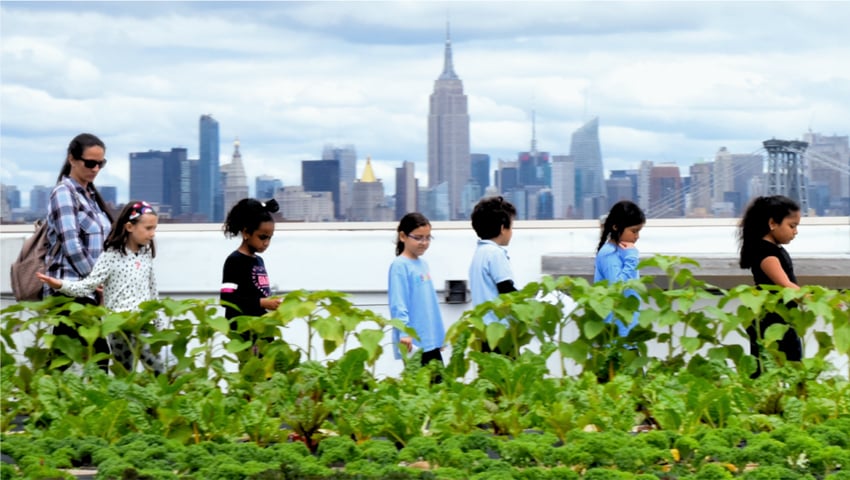AS NATIONAL governments lag on urgent and far-reaching climate action, they need look no further than the pioneering strategies of their own cities and regions to transform food systems – according to a new report out today by the International Panel of Experts on Sustainable Food Systems (IPES-Food).
Governments will soon gather at COP28 (Dubai, November 30) for the first global review of progress towards the Paris Agreement, however, the UN has concluded that governments are way off course in limiting greenhouse gas emissions to reach the 1.5°C goal. And they are still ignoring a clear and proven pathway to slashing emissions: making our food systems more sustainable.
The new report ‘From Plate To Planet’ finds weak and fragmented action at the national level, with food systems routinely overlooked in climate negotiations and national climate plans – despite food systems contributing one third of global greenhouse gas emissions.
The picture is completely different, however, when we look to city and regional governments. The report unveils the efforts of dozens of leading cities and regions to reduce food miles, cut food waste, transform school canteens, and spark shifts to sustainable diets. The expert panel calls on national governments to take inspiration from local action and harness the emissions-cutting potential of transforming food systems.
Olivier De Schutter, co-chair of IPES-Food, said, “It’s truly inspiring to see cities and regions leading the way on action to transform food systems and reduce emissions. Even more remarkable, they have kept forging ahead despite Covid-19, despite the cost of living crisis, and often without much support from national governments.
“These policies are quietly working because local governments are addressing climate change with communities long-term together with other challenges that people care about, like healthy diets and supporting local businesses.
“These are no longer just inspiring examples. Local governments are offering a blueprint for real people-centred climate action – and laggard national governments must start to follow.”
In total, the emissions cuts pledged by local and regional governments go 35% above and beyond those pledged by national governments, and these pledges are being translated into real and measurable actions, especially when it comes to food systems.
Following a 3-year process of engagement with pioneering local authorities, the report highlights a range of inspiring local food and climate action.
IPES-Food is calling on national governments to take the opportunity of the Paris Agreement stocktaking at COP28 to systematically include food systems and local action in their climate commitments. Further, it calls on governments to build on what cities are already doing – supporting local government actions with more funding and scaling out successful approaches to other cities and regions.
De Schutter added, “It’s time for national governments to build on the pioneering work of local governments to transform food systems – drawing down emissions from plate to planet.”
Read the report and the report summary here
